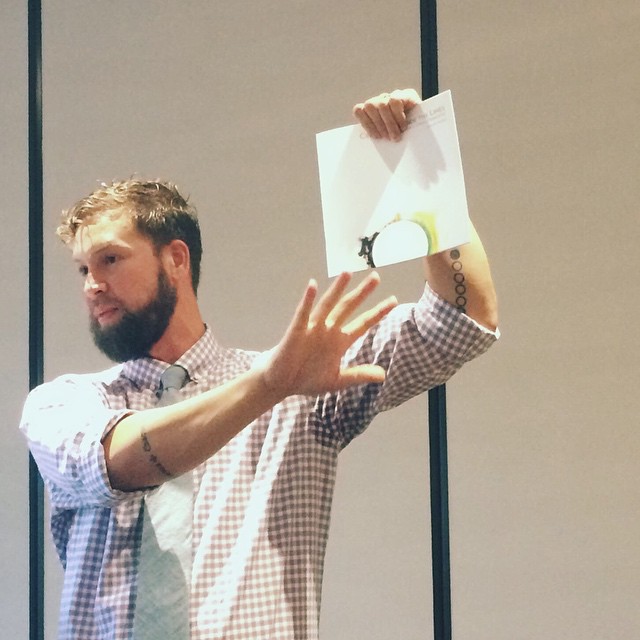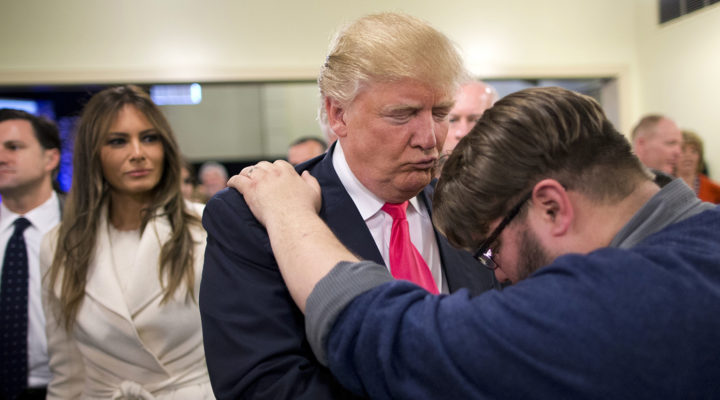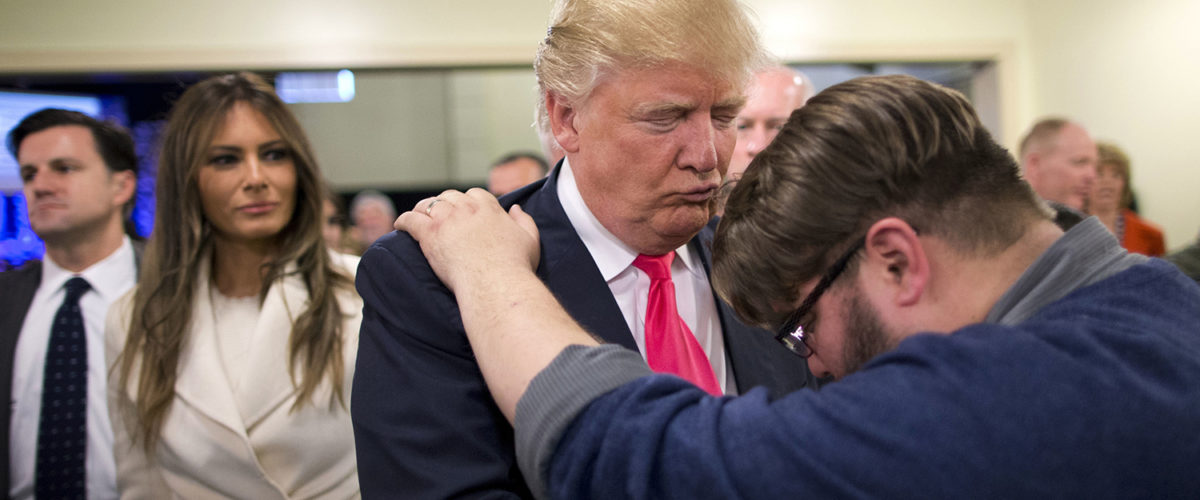John Jay Alvaro is one of those thoughtful ministers. He frequently pauses when asked tough questions — especially when it’s about matters of faith and culture. And he chooses his words carefully.
That’s precisely what he did Tuesday morning when asked to share his take on an American Christianity that greenlighted the Trump presidency.
“I think the church has failed and that it’s time for it to die,” said Alvaro, pastor at Spring Creek Baptist Church in Oklahoma City.
Alvaro added that he was conducting his half of the interview from a cemetery because it felt appropriate when contemplating the funeral of the U.S. church. Plus, he said, there is an upside.
“If funerals do anything well, they bring families back together. It may be chaotic, but it may also be an opportunity.”
Polarized politics

The fact that a majority of white evangelicals abandoned the traditional “values voter” approach to vote for Donald Trump is an indication of the sickness of the church, John Jay Alvaro said. (Photo/courtesy of John Jay Alvaro)
One of the sources that’s influenced Alvaro’s assessment of the state of Christianity in America is the speaking and writing of Michael Wear, a former faith advisor to President Barack Obama.
Like many others, Wear has been dissecting how it is that so many white evangelical Christians — the so-called “values voters” — went for Donald Trump in the election.
Even a month after Election Day, the results are bracing.
“While earlier in the campaign some pundits and others questioned whether the thrice-married Trump would earn the bulk of white evangelical support, fully eight-in-ten self-identified white, born again/evangelical Christians say they voted for Trump, while just 16 percent voted for Clinton,” the Pew Research Center reported on Nov. 9.
Speaking recently in London, Wear noted that Trump’s incoherent, bullying, inflammatory and divisive campaign seemed like a long-shot to get any conservative Christian support, according to a Dec. 2 Christianity Today article about Wear’s talk.
But Trump aggressively courted evangelicals, assuring them he would be their protector and ally in an increasingly secular culture in which they feel their faith to be persecuted.
“Democrats had nothing to say” on the subject, Wear said in the article. “They were virtually silent to these voters.”
Moving forward, he said, the solution is for Americans to stand up for those living on the margins and to move away from culture-war politics. Instead, they must strive to embrace a “view of politics that is about more than serving their own self-interest.”
Doing so requires, in part, ending isolation from those with different political and religious views. That needs to happen online and at the dinner table.
At the moment, the opposite is the case.
“And then we wonder why our politics is so polarized,” Wear said.
‘Hopeful imagination’
That will be a tall order, said Alvaro, who admitted to curating his social media feeds to reflect his views and to offer solace from conflict.
“Anxiety sends us into our bubbles, into our echo chambers,” he said. “No one wants to suffer.”
That anxiety has also created divisions within the church, which in turn have contributed to the toxic political situation that helped elect Trump.
“The majority of church goers had a failure of Christian imagination,” Alvaro said. “They could not discern right from wrong.”
But Alvaro said he isn’t pessimistic. He said the chaotic descent of the church as positive because it will lead to rebirth. And he said he’s seeing signs of that rebirth in reconciliation efforts bubbling up around the nation.
On Monday, he posted a CBS News story about two congregations in Macon, Ga., First Baptist Church, which is largely African-American, and First Baptist Church in Christ, which is predominantly white. The two have been taking active steps to bridge the racial divide between them, including through shared ministry.
Previously, Baptist News Global has reported that the two congregations entered into a covenant of action, a unity-through-service approach to reconciliation championed by the New Baptist Covenant.
“That’s what hopeful imagination looks like,” Alvaro said. “That’s reconciliation work, that’s people on the ground forming connections.”


